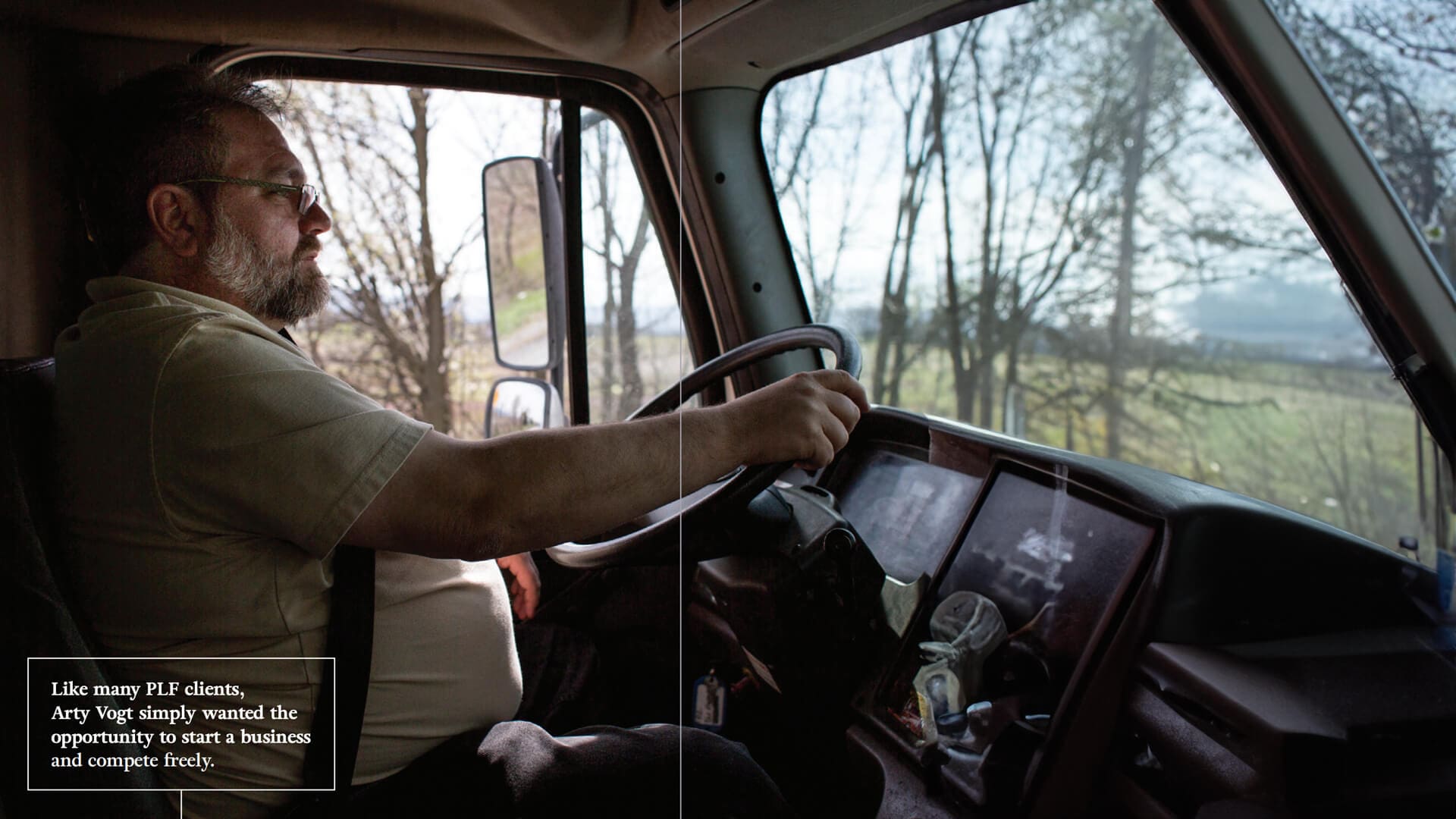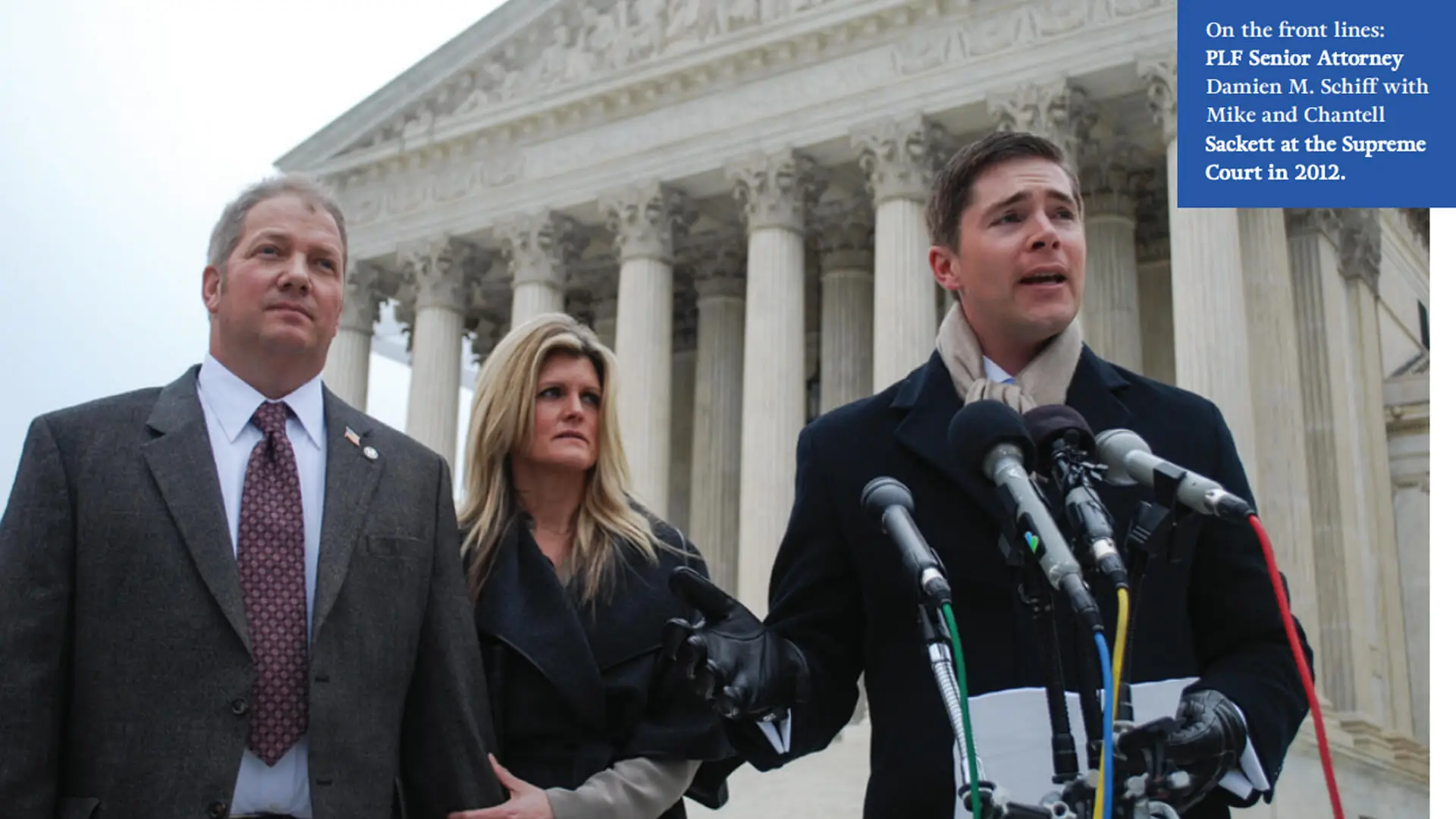LIKE MANY PLF CLIENTS, Arty Vogt simply wanted the opportunity to start a business and compete freely.
He had used his life savings to purchase a moving company in West Virginia only to encounter one of the most anti-competitive laws in the nation: a Certificate of Need requirement. Those laws, sometimes called “Competitor’s Veto” laws, essentially allow existing businesses to shut down new competition.
The way the Competitor’s Veto works is that when someone applies for permission to run their business, the existing businesses can protest for any reason—including the fact that they simply don’t want to compete. A protest subjects the applicant to a hearing where they must persuade a bureaucrat that their business is necessary. When Arty realized he needed a Certificate, he applied for one. But he was denied after a competitor protested and the government deemed his business unnecessary.
Represented by PLF, Arty sued, arguing that the government shouldn’t be in the business of picking winners and losers. As we discovered from litigation, in practice the government had simply deferred to the existing businesses’ assertion of whether a new business was necessary. Every application that had been protested in the past ten years had been denied. The last time a business had been able to obtain a Certificate was in 2005.
After PLF sued, the legislature passed a bill repealing the Competitor’s Veto requirement for movers—freeing Arty to compete legally. While this was a major achievement for economic liberty in West Virginia, work still remains. Similar laws persist in over half of the states, and PLF won’t stop challenging them until we set precedent that they are not only unfair, but unconstitutional.
PLF’s victory in challenging West Virginia’s Competitor’s Veto law follows up on the Foundation’s successful litigation against similar anticompetitive schemes for the moving or transportation businesses in Oregon, Missouri, Montana, and Kentucky.






